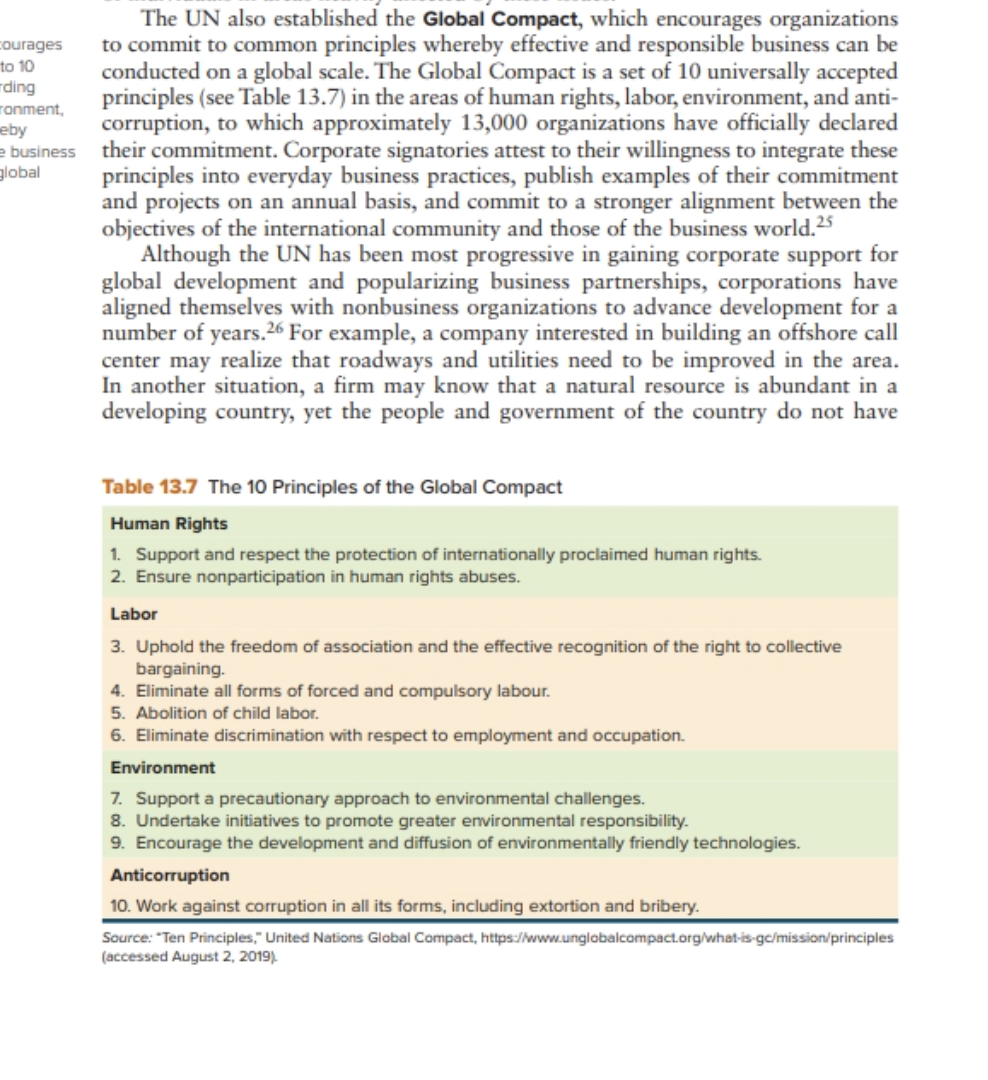Question
1. Define cultural intelligence (CQ) in your own terms. Compare your definition with the definition used in this chapter. 2. How are stakeholder relationships in
1. Define cultural intelligence (CQ) in your own terms. Compare your definition with the definition used in this chapter.
2. How are stakeholder relationships in a global context different from those in a domestic context? In what ways are they alike?
3. What is the likelihood that corporate leaders agree on a global set of social responsibility standards? What evidence do you have?
4. How can organizations create stronger engagement with employees? What would be the effects on social responsibility? How would social responsibility affect engagement?
5. Define fair trade in your own terms. In what ways should consumers consider fair trade issues when making purchases and investments?
6 Review the Global Compact principles presented in Table 13.7. In what ways are these principles and issues related to a successful global economy? What benefits and/or challenges do they present to multinational corporations?
7. What are some ways that a company can measure its progress to comply with global reporting initiative guidelines? Propose both quantitative and qualitative measures.

Step by Step Solution
There are 3 Steps involved in it
Step: 1

Get Instant Access to Expert-Tailored Solutions
See step-by-step solutions with expert insights and AI powered tools for academic success
Step: 2

Step: 3

Ace Your Homework with AI
Get the answers you need in no time with our AI-driven, step-by-step assistance
Get Started


